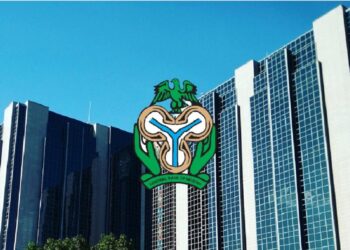In Lagos, Nigeria, like other African cities, Johannesburg, Cairo, Nairobi among others the pressure to appear rich has reached disturbing heights. Amid a backdrop of rapid urbanisation and economic uncertainty, social media platforms have only intensified this pressure, making it feel as though success is synonymous with material wealth. From sleek cars on the streets of Lekki, Victoria Island, or Ikeja and flashy social media posts make it hard to ignore the overwhelming desire to flaunt wealth in Lagos Nigeria. In recent time the extravagant parties and designer clothes, the pursuit of outwardly projecting affluence has become an obsession, leaving many trapped in a cycle of debt and despair. The unfortunate paradox here is that it’s difficult for a broke person to keep up the appearance of affluence for long, while a rich person, paradoxically, can play broke every day of the week without breaking a sweat. But the problem runs much deeper than just appearances; it has become a silent epidemic that has wreaked havoc on the mental and physical well-being of countless individuals. This pressure to appear wealthy, fueled by the desire for social validation, has now crossed dangerous thresholds, often leading to extreme consequences.
With Nigeria facing one of its highest inflation rates in decades, the economic landscape has made it increasingly difficult for many people to simply make ends meet. A devalued Naira, skyrocketing prices of goods, and unpredictable economic policies are forcing individuals to make impossible choices. For the young, the hungry, and the vulnerable, social media platforms such as Instagram and Twitter have become breeding grounds for comparison, feeding into the illusion that wealth is easily attainable. What most people fail to see, however, is that the “rich” lifestyle they covet is often unattainable for anyone not already possessing considerable resources. The consequence? A generation of individuals who feel forced to live beyond their means, often going into debt or risking their lives to maintain a false image of success. Even worse, the financial pressure to appear rich can often spiral into even darker consequences. In recent years, Lagos, Ilorin and many parts of Nigeria have seen a surge in ritual killings, kidnapping, and other terrible crimes often linked to the dangerous desire to accumulate wealth, or at least the appearance of it. These violent crimes are often perpetrated by those who, due to lack of opportunities, have found themselves cornered by an economic system that rewards only those with visible wealth, no matter the means. This disturbing trend feeds directly into the cycle of social media glorification, where a brazen display of wealth often gathers admiration, and in some cases, even envy. This desire to appear rich without any meaningful livelihood has led to a breeding ground for criminality and social vices. Young people, especially, are finding themselves caught in this dangerous web, where they feel the need to flaunt wealth they do not have in order to gain respect and social media validation. The pressure is unbearable, and the consequences can be life-altering. As inflation continues to rise, the temptation to adopt a fake life becomes even more pronounced, with people willing to do anything whether fraudulent or violent to escape the crushing grip of financial instability.
Those who truly understand the value of money often prefer simplicity, investing in long-term growth rather than short-term gratification. It’s a lesson that the majority in Lagos and other Nigerian cities need to learn: living within your means, focusing on long-term financial growth, and avoiding the temptation to project affluence for approval will lead to more sustainable happiness. Financial stability does not come from showing off; it comes from sound financial decisions, investments, and the ability to live within one’s means. Instead of chasing a lifestyle that is unattainable for most, focus on building something that lasts. Seek opportunities to learn about personal finance, invest in skills, and explore sustainable business ideas. Consider putting money into assets that appreciate over time, such as real estate, stocks, or even a side hustle that offers long-term returns. Building a meaningful life also means finding value beyond material possessions. Pursue personal growth, invest in relationships, prioritise health, and learn to appreciate the things that truly bring happiness family, knowledge, experiences, and personal fulfillment.
In conclusion, while Lagos and other Nigerian cities continue to be hotbeds for the illusion of wealth, it is crucial that we shift the narrative. Let’s break the cycle, resist the pressures to conform, and begin making thoughtful, sustainable choices that can lead to true success, one built on a life of purpose. Only then can we break free from the chains of societal expectation and find lasting happiness, without risking everything in the pursuit of a fake life. The key to navigating this period is by adopting a meaningful private life and investing in things that matter, not in what the world sees. Good Luck!
How may you obtain advice or further information on the article?
Dr Timi Olubiyi is an Entrepreneurship and Business Management expert with a PhD in Business Administration from Babcock University, Nigeria. A prolific investment coach, columnist, author, adviser, seasoned scholar, Chartered Member of the Chartered Institute for Securities & Investment (CISI), Member of the Institute of Directors, and Securities & Exchange Commission (SEC) registered capital market operator. He can be reached on the Twitter handle @drtimiolubiyi and via email: drtimiolubiyi@gmail.com, for any questions, reactions, and comments. The opinions expressed in this article are those of the author, Dr. Timi Olubiyi and do not necessarily reflect the opinions of others.





